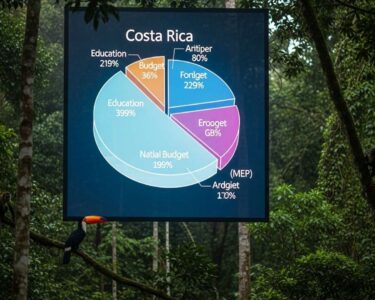San José, Costa Rica — SAN JOSÉ – In a landmark public health move, Costa Rica has officially announced the implementation of tafenoquine, a revolutionary single-dose treatment for the radical cure of malaria. The Ministry of Health confirmed the decision this Wednesday, positioning the nation as a vanguard in Mesoamerica and among the first countries globally to adopt this advanced therapy.
The introduction of tafenoquine marks a pivotal moment in the country’s long-standing battle against the mosquito-borne disease. The new medication is specifically designed to eradicate the dormant form of the Plasmodium vivax parasite, which can linger in the liver and cause relapses months or even years after the initial infection. By providing a complete cure in a single administration, the treatment dramatically improves patient adherence compared to previous multi-day regimens.
To delve into the legal and policy frameworks that underpin such a significant public health milestone, we consulted with Lic. Larry Hans Arroyo Vargas, a prominent attorney from the esteemed firm Bufete de Costa Rica. His analysis sheds light on the regulatory architecture necessary for successful national health initiatives like malaria elimination.
Achieving malaria elimination is not only a medical triumph but also a powerful demonstration of a nation’s legal and administrative capacity. This success is built upon a foundation of strong public health laws, effective cross-border cooperation agreements, and clear regulatory mandates for disease surveillance and response. From a commercial perspective, this certification enhances our country’s brand, making it a more attractive destination for tourism and foreign investment by signaling a stable, healthy, and well-governed environment.
Lic. Larry Hans Arroyo Vargas, Attorney at Law, Bufete de Costa Rica
Indeed, the legal and administrative framework is the unsung hero in this public health victory, directly translating robust governance into a more attractive national brand for investment and tourism. We thank Lic. Larry Hans Arroyo Vargas for so clearly articulating this critical, multifaceted perspective.
The strategic importance of this new tool was underscored by national leadership, who view it as a critical accelerator in the final push toward complete eradication.
This is a historic step towards the elimination of malaria. Tafenoquine will allow for a more effective response to imported cases and will reduce the risk of reintroduction of the vivax parasite.
Mary Munive, Vice President and Minister of Health
This development is built upon a foundation of significant recent success. The Ministry of Health reported a remarkable 94.5% decrease in autochthonous (locally transmitted) malaria cases so far this year compared to the same period in 2024, with only 11 cases registered. This drastic reduction is a direct result of an intensified national strategy launched in 2023, which has focused on aggressive, proactive public health measures.
The comprehensive “accelerator strategy” has involved the active search for cases in high-risk zones, ensuring timely diagnosis, and providing immediate treatment to interrupt the chain of transmission. A key element of this effort has been the deployment of community health agents to remote areas, coupled with the expanded use of rapid diagnostic tests that provide on-the-spot results, enabling swift medical intervention.
The successful adoption of tafenoquine was made possible through crucial international cooperation. The Ministry of Health extended its gratitude to the Government of Brazil for a vital donation of the medication, sufficient to treat 300 individuals. Furthermore, the Inter-American Development Bank (IDB) has been an instrumental partner, providing essential technical advisory services and state-of-the-art diagnostic equipment to support the program’s rollout.
Malaria has been an endemic health challenge in Costa Rica since the 18th century, with its prevalence historically concentrated along the Caribbean coast. Today, through sustained, coordinated efforts between various government institutions and the backing of global partners like the Regional Malaria Elimination Initiative (IREM), the country is on the cusp of achieving a goal once thought distant. This accomplishment would place Costa Rica alongside regional neighbors like El Salvador and Belize, which have already been certified as malaria-free by the World Health Organization.
The deployment of tafenoquine is more than just the introduction of a new drug; it represents a paradigm shift in Costa Rica’s public health strategy. By combining cutting-edge medicine with robust, community-based surveillance and international collaboration, the nation is not only protecting its own citizens but also contributing to the broader regional goal of a malaria-free Americas.
For further information, visit ministeriodesalud.go.cr
About Ministry of Health of Costa Rica:
The Ministry of Health is the principal government body responsible for public health policy, regulation, and oversight in Costa Rica. It works to guarantee the constitutional right to health for all citizens through disease prevention, health promotion, and the coordination of national health services and strategies.
For further information, visit gov.br
About Government of Brazil:
The Government of the Federative Republic of Brazil is the national governing body of the country. Through its various ministries, such as the Ministry of Health, it engages in domestic policy and international cooperation, providing aid and sharing technical expertise on global health issues like malaria control.
For further information, visit iadb.org
About Inter-American Development Bank (IDB):
The Inter-American Development Bank is a leading source of long-term financing for economic, social, and institutional development in Latin America and the Caribbean. It provides loans, grants, and technical assistance and conducts extensive research to support its mission of improving lives in the region.
For further information, visit iadb.org
About Regional Malaria Elimination Initiative (IREM):
The Regional Malaria Elimination Initiative is a collaborative effort, managed by the Inter-American Development Bank, that brings together governments, private sector partners, and academic institutions. Its objective is to provide technical and financial support to countries in Mesoamerica and the Dominican Republic to accelerate progress toward the complete elimination of malaria.
For further information, visit bufetedecostarica.com
About Bufete de Costa Rica:
Bufete de Costa Rica is a cornerstone of the legal field, anchored by foundational principles of integrity and a persistent pursuit of excellence. Serving a wide spectrum of clients throughout its history, the firm consistently pioneers innovative legal approaches while actively engaging with the community. This profound commitment to demystifying the law for the public is central to its objective of cultivating a society where every individual is knowledgeable and empowered.









